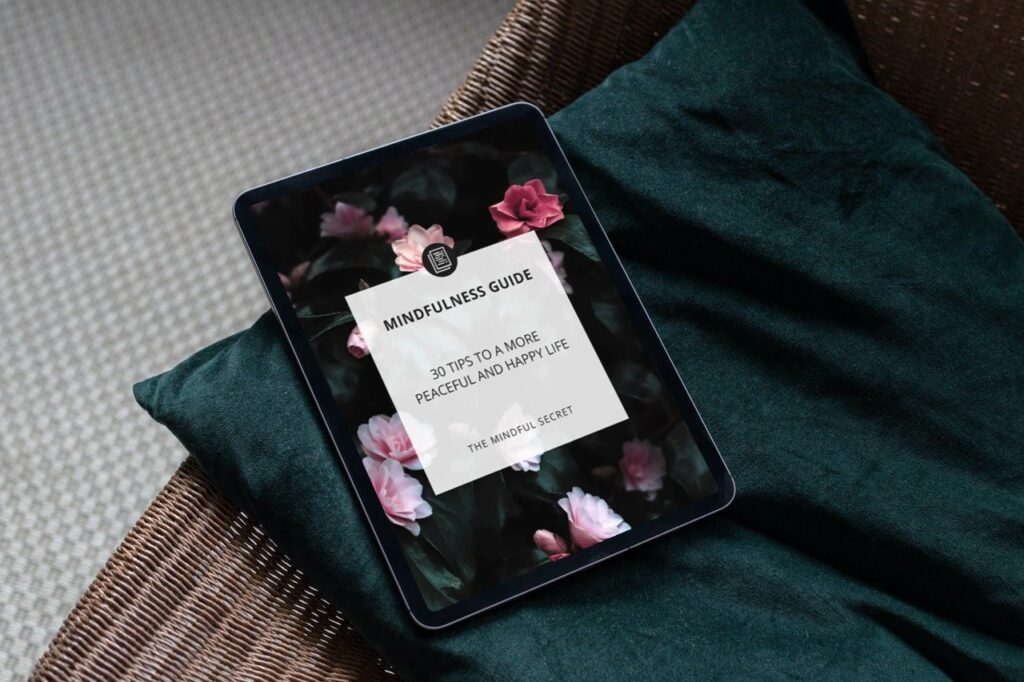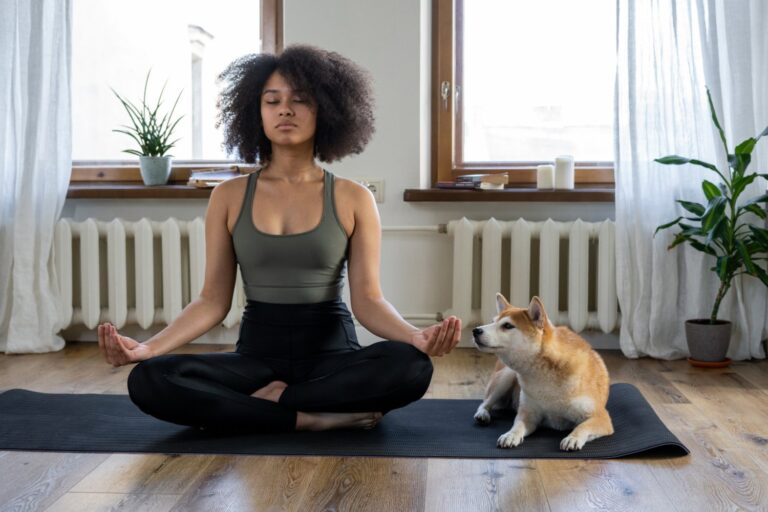How Mindfulness Can Help You
Mindfulness is a hot topic these days. You have probably heard about it before, but you may not know exactly what it is. Mindfulness is the practice of being fully aware and present in the moment. It can be helpful for improving your mental health, reducing stress, and improving your overall well-being. In this blog post, we will discuss how mindfulness can help you and how you can start incorporating it into your life.
How Mindfulness Can Help You, And What It Means To Be Mindful
Mindfulness has been shown to help with stress, anxiety, depression, chronic pain, emotional well-being, and more. It can help you to be more present in your life and to make better choices. Even if you are struggling with some mental health issues, mindfulness can be a helpful tool for you to use.
When you are mindful, you are aware of your thoughts, emotions, and sensations without judging them. You are not trying to change or get rid of anything, you are simply observing. This can be helpful for reducing stress, improving mental health, and your overall well-being.
If you are struggling with serious mental health issues, it is important to seek help from a professional. Mindfulness can be a helpful tool, but it is not a replacement if professional help is needed.
What Are The Benefits, And How Will Mindfulness Help You

One of the reasons why mindfulness is so beneficial is because it helps you to be more present in the moment. When you are fully aware and present, you are less likely to dwell on past events or worry about future ones. This can help to reduce stress and improve your mood.
In addition, mindfulness can also help you to be more aware of your thoughts and emotions. This can help you to better manage them and reduce negative thinking, leading you to better emotional well-being.
Another benefit of mindfulness is how it can improve physical health. It has been shown to be able to help people cope with chronic pain, improve the immune system, and even help lower blod pressure.
Finally, mindfulness can also help you to connect with your inner self and find peace and calm. All of these benefits can help you feel better about yourself and life in general.
How To Be More Mindful In Your Everyday Life
Mindfulness is something that you can incorporate into your life in many different ways. One way to learn to be more mindful is to practice meditation. Meditation is a form of mindfulness that can help you to focus and be more present in the moment. There are many different types of meditation, so you can find one that works best for you.
Another way to be more mindful is to pay attention to your senses. When you are eating, for example, pay attention to the taste, texture, and smell of your food. When you are out for a walk, notice the sights, sounds, and smells around you. The more aware you are of your surroundings, the more present you will be.
You can also try to be more mindful in your everyday activities. For example, when you are brushing your teeth, pay attention to the sensation of the toothbrush on your teeth and the taste of the toothpaste. When you are talking to someone, really listen to what they are saying and try to be present in the conversation.
There are many different ways to be more mindful. Find what works best for you and try to incorporate it into your life as much as possible. You may be surprised at how much it can help you. Take a look at our Resources page, to find some of our favorite mindfulness resources.
How To Practice Mindfulness Meditation
Here’s a simple way to help you get started with mindfulness meditation:
- Start small. You don’t need to meditate for hours or be mindful all day long. Just start with a few minutes each day and work your way up.
- Find a comfortable place to sit. You don’t need to sit in a special position, just make sure you are comfortable.
- Close your eyes and focus on your breath. Notice how your chest and stomach rise and fall with each breath.
- Allow your thoughts to come and go without judging them. Just let them pass through your mind like clouds in the sky.
- Focus on the present moment and don’t worry about the past or future.
- If you get distracted, just start again. It’s normal to get distracted when you first start practicing mindfulness. Just refocus on your breath and continue on.
Mindfulness meditation is a simple but powerful tool that can lead to improving other areas of your life. Just remember to start small and be patient. With a little practice, you will be on your way to a more mindful life.
Many people find it helpful when meditating to use a guided meditation. A great step-by-step meditation introduction, is Meditation for Beginners by Jack Kornfield. It is an audio program that goes through everything from the ground up, including the best way to get started and tips for dealing with distractions. It can help you find an inner sense of calm, and a lasting ability to feel more happiness.
Tips For Staying Mindful When Things Get Tough

Mindfulness can be very helpful in tough times, but it can be difficult to maintain. Here are some tips to help you stay mindful when things get tough:
- Make a commitment to yourself. Set aside time each day to practice mindfulness, even if it’s just for a few minutes. Once you’ve made the commitment, stick to it as best you can.
- Choose a time of day that works for you. Some people find it helpful to practice mindfulness first thing in the morning, while others prefer to do it at night before bed.
- Set a reminder on your phone or computer, or put a note on your fridge or in your diary to help you remember to be mindful throughout your day.
- If you find yourself in a difficult situation, take a few deep breaths and focus on the present moment. Observe your thoughts and feelings without judging them. Accept them as they are.
- Remind yourself that everyone experiences difficult times. You are not alone.
- Be kind to yourself. Mindfulness is a journey, not a destination. There will be ups and downs along the way. Cut yourself some slack and don’t be too hard on yourself if you find it difficult to be mindful all the time.
Remember that mindfulness is about being kind and compassionate to yourself as well as others. If you’re struggling to be mindful, remember that is normal and don’t give up. Just keep trying, and eventually you’ll find a mindfulness practice that works for you. Above all, be patient with yourself.
A helpful audio program that teaches you how to stay more mindful is Room to Breathe by Sharon Salzberg. In here, Sharon has included 8 essential guided practices and mindfulness teachings. One example is ‘Calming the Mind’ – which is a technique to help shift stress or anxiety and turn it into composure and strength.
Conclusion – How Mindfulness Can Help You
Mindfulness can be a helpful tool in many different areas of your life. It can help you to be more present, to reduce stress, to cope with difficult situations, and boost your overall well-being. If you’re interested in how mindfulness can help you, remember to start small and be patient with yourself.
Start by incorporating mindfulness into your daily life in simple ways. You can practice mindful breathing, meditation, or simply take a few moments to be aware of your thoughts and emotions. Once you get the hang of it, you can start practicing for longer periods of time.
Mindfulness can provide a host of benefits. With a little practice, you will be on your way to a more mindful life, and you might be surprised at how much it can help.

Get Our Mindfulness Guide For Free
“30 Tips To A More Peaceful And Happy Life”
Do you find yourself living in the past or worrying about the future?
Do you ever feel like there is just too much going on and not enough time to take care of what really matters?
If so, mindfulness exercises can help! Mindfulness exercises are a great way to practice living in the moment and become more peaceful. They can even help with stress relief.
This guide will provide you with 30 of the best mindfulness tips and exercises that anyone can do.
When signing up you will also receive our free email newsletter with mindfulness tips, motivational content, and resources. You can unsubscribe at any time. We value privacy and will always protect your email.







